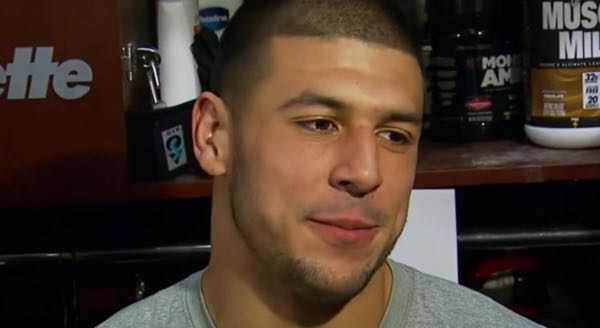
By committing suicide inside his prison cell early Wednesday morning, Aaron Hernandez died an innocent man.
At least, that is how the state of Massachusetts will view it.
Martin W. Healy, chief legal counsel to the Massachusetts Bar Association, told Evan Allen of The Boston Globe about a legal principle called “abatement ab initio,” which in layman’s terms means “from the beginning.” What that means is that if a person dies before exhausting all possible legal appeals in a case, the case reverts to its earliest stage.
In other words, Hernandez was never convicted of murdering Odin Lloyd in 2013.
“Unfortunately, in the Odin Lloyd matter, for the family, there won’t be any real closure,” Healy explained. “Aaron Hernandez will go to his death an innocent man.”
Massachusetts is one of several states that still observes the abatement ab initio principle. Perhaps more importantly, it could now help protect Hernandez’s family against civil litigation going forward. Now that Hernandez has not technically been tried for the murder of Lloyd, no evidence established during the Lloyd trial can be used in civil court. Other states have abandoned abatement ab initio after high-profile murderers had their convictions wiped clean because of their deaths, according to Healy.
Department of Correction officials say Hernandez gave no indication that he was suicidal and did not leave a note in his cell, so we may never know why the former NFL star decided to take his own life. In fact, some people close to Hernandez believe he was murdered. Hernandez’s attorney is launching an investigation into the ex-New England Patriot’s death.
The details surrounding Hernandez’s death make it seem impossible that someone else could have been in the cell with him. In reality, the people who refuse to believe Hernandez could take his own life are probably the same ones who did not believe he could take another man’s.













